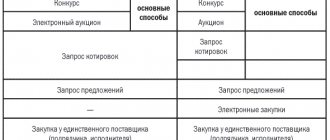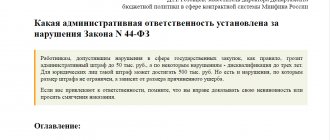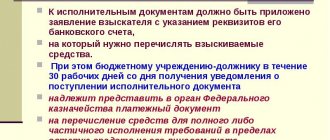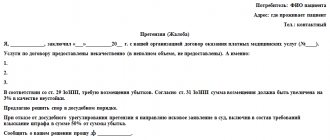Free legal consultation by phone
Dear readers! Our articles talk about typical ways to resolve legal issues, but each case is unique. If you want to find out how to solve your particular problem, please use the online consultant form on the right or call
Moscow and Moscow region +7 499 938 62 89
St. Petersburg and Leningrad region +7-812-425-13-17
The three parts of this article provide for the following punishment in the form of imprisonment:
- Up to two years.
- Up to six years.
- Up to ten years.
Milder punishments, for example, in the form of a fine, are prescribed by the legislator for the same three parts as follows:
- Up to 300 thousand rubles
- From 100 to 500 thousand rubles.
- There is no penalty.
Part 1 of Article 238 of the Criminal Code of the Russian Federation entails lenient sentences; as a rule, a fine is imposed. Even a suspended sentence is not always given by judges: a fine as an affordable punishment is more effective, since it punishes precisely for attempting to make illegal money from dangerous products.
Article 238 part 1 of the Criminal Code of the Russian Federation refers to crimes of minor gravity and allows an accused who has committed a crime for the first time to ask for a court fine without passing a sentence.
According to Part 1 of Article 238 of the Criminal Code of the Russian Federation, the punishment cannot exceed two years of imprisonment, but this maximum punishment can only be imposed in case of very large volumes of production of dangerous products, and if this crime is not committed for the first time.
The application of Article 238 of the Criminal Code of the Russian Federation with other articles (for example, on economic crimes) can lead to a term in a colony, where the total term will be determined by the partial addition of sentences.
For the provision of services of inadequate quality, the Criminal Code of the Russian Federation provides, incl. and restriction of freedom. This punishment has a good educational effect for those persons who sold counterfeit alcohol, bringing it to customers. Often people who are prone to drinking alcohol feel the need for alcohol at night when the sale of alcoholic beverages is prohibited. As practice shows, in this case they have the phone number of a “trusted” taxi driver who can bring a bottle or two, not necessarily real vodka.
If the taxi driver ends up receiving a restriction of freedom for a year and spends the entire year at home strictly from 10 pm to 6 am, this will certainly have an educational effect on him, and in the future he will no longer strive to earn easy but criminal money.
The most severe punishment: for the death of two or more persons as a result of the sale of dangerous products and the provision of dangerous services, the court can give up to 10 years in a colony. In 2011, amendments were made to the text of the article: the latest version of Part 3 of Article 238 of the Criminal Code of the Russian Federation does not provide for a lower limit for the term of imprisonment (previously the term started from 4 years).
The humanization of this part makes it possible to lightly punish those accomplices in the crime who did not play a decisive role in the crime (for example, an employee who knew that the company produced counterfeit drugs, but had no direct connection with them).
Arbitrage practice
Just one bottle of counterfeit vodka constitutes a crime. Thus, in the Rossoshansky District Court of the Voronezh Region, citizen Lebedeva was convicted of trying to sell a bottle of counterfeit vodka at the Rossosh station (the court imposed a fine of 5,000 rubles).
It also happens the other way around: a large number of handicraft products does not lead to criminal liability. In 2015, the Nyandoma District Court of the Arkhangelsk Region acquitted citizen Butvina, who admitted guilt, and a number of witnesses testified that they purchased strong drinks from Butvina and even saw how she diluted them from alcohol.
The basis for Butina’s acquittal was the lack of an expert’s conclusion that these liquids pose a danger to human health. Despite the prosecutor's appeal, the regional court upheld the acquittal.
Another popular area of illegal dangerous activity: passenger transportation. In Petropavlovsk-Kamchatsky in 2015, a “taxi driver” was convicted, who did not even have a driver’s license, but was transporting passengers. The punishment was a fine of 30 thousand rubles.
Russian courts sometimes hear criminal cases against migrants from Uzbekistan, Tajikistan and other countries who work as drivers in the field of transporting passengers. Thus, in 2010, the Kirovsky District Court of St. Petersburg convicted citizen of Uzbekistan Ibragimov, who, having received from the traffic police a ban on operating the Gazelle and a list of faults that had to be eliminated, continued to carry passengers in the Gazelle until he was stopped again. The police discovered that
One of the most famous cases related to the performance of work that does not meet safety requirements is the case of Konstantin Mrykhin, one of the co-owners of the Perm nightclub “Lame Horse”, where as a result of a fire caused by a pyrotechnic show, he died on the spot and died from burns later 156 Human.
If the accused admits guilt and asks for a special order, most likely the verdict will not entail an actual prison sentence . However, a new sentence for someone previously convicted under the same article may no longer be so lenient.
To receive a lenient sentence, the accused should:
- admit guilt and assist the investigation in solving the crime;
- bring mitigating circumstances (young children and disabled dependent relatives, difficult financial situation);
- ask for a special procedure when transferring the case to court.
With the first conviction, this practically excludes the colony, except in cases where low-quality, dangerous products led to human casualties.
Commentary on Article 238 of the Criminal Code of the Russian Federation
The object of the crime is public health.
The subject of the crime is goods, products, works, services that do not meet the requirements for the safety of life or health of consumers, as well as official documents certifying the compliance of goods, works and services with safety requirements.
An injured consumer is a citizen who intends to order or purchase, or who orders, purchases or uses goods (work, services) exclusively for personal, family, household and other needs not related to business activities.
In accordance with the Law of the Russian Federation of February 7, 1992 N 2300-1 “On the Protection of Consumer Rights” <1> the consumer has the right to ensure that the product (work, service) is safe under normal conditions of its use, storage, transportation and disposal for the life, health of the consumer, the environment, and also did not cause harm to the property of the consumer.
——————————— <1> SPS “KP”.
Federal Law of December 27, 2002 N 184-FZ “On Technical Regulation” <1> determines that the safety of products, production processes, operation, storage, transportation, sales and disposal is a state in which there is no unacceptable risk associated with causing harm to the life or health of citizens, property of individuals or legal entities, state or municipal property, the environment, life or health of animals and plants. Safety is divided into radiation safety, biological safety, explosion safety, mechanical, industrial, thermal, chemical, electrical, nuclear and radiation safety.
——————————— <1> NW RF. 2002. N 52 (part 1). Art. 5140.
Goods and products that do not meet safety requirements are goods in the form of finished products or individual components and raw materials, the use of which is associated with harm to human health, death or other serious consequences. Such goods can be both industrial (for example, electrical appliances, household chemicals, etc.) and food.
Services that do not meet safety requirements may include repairs of electrical household appliances, vehicles using low-quality spare parts, etc.
Within the meaning of the article in question, liability for the crime provided for by it is possible only if it is proven not only the very fact of production, storage or transportation for the purpose of marketing or marketing of goods and products, performance of work or provision of services, but also the danger of these actions for the life or health of consumers, and also that the person who committed them is aware of the nature of his actions and their non-compliance with safety requirements, which does not imply the possibility of making an arbitrary decision on criminal liability.
The objective side of the crime is expressed in one of the following actions: a) production of goods and products that do not meet the requirements for the safety of life and health of consumers; b) storage of such goods and products; c) transportation of the specified goods and products; d) sale of goods and products that do not meet the requirements for the safety and health of consumers; e) performance of work or provision of services that do not meet the requirements for the safety of life and health of consumers; f) unlawful issuance or use of an official document certifying the compliance of specified goods, works or services with safety requirements.
Work that is dangerous to life and health can include, for example, the construction of residential buildings, the construction of public utility facilities, etc. in violation of building codes or using low-quality materials, etc.
Official documents certifying the compliance of goods, works and services with safety requirements may be a quality certificate, a sanitary and hygienic certificate, a manufacturer’s warranty, etc.
Production means the manufacture of products that are documented with documents certifying their compliance with consumer safety and health standards. Manufacturers can be any enterprise, regardless of their form of ownership, as well as individual entrepreneurs producing goods for sale.
Storage involves the temporary maintenance of manufactured goods and products in warehouses and other places.
The transportation of goods and products means their movement using various vehicles from the place of production or storage to the place of sale.
The sale of goods and products means their sale through a purchase and sale transaction in various trade enterprises, regardless of their form of ownership, as well as by individual entrepreneurs.
Performance of work and provision of services means the performance by a person of certain types of work on the basis of an agreement with the consumer, if these works (services) do not meet safety requirements.
If a person carries out illegal business activities by manufacturing and selling counterfeit goods, for example, alcohol-containing drinks, medicines, under the guise of genuine ones, deceiving consumers of these products regarding the quality and other characteristics of the goods that affect its cost, the act constitutes fraud and additional qualifications under Art. 171 of the Criminal Code of the Russian Federation does not require it. In cases where these actions are related to the production, storage or transportation for the purpose of distribution or sale of counterfeit goods that do not meet the requirements for the safety of life or health of consumers, the act constitutes a set of crimes provided for in the relevant parts of Art. 238 and art. 159 of the Criminal Code of the Russian Federation.
In cases where illegal business activity was associated with the production, storage or transportation for the purpose of distribution or sale of goods and products (unfalsified), performance of work or provision of services that do not meet the requirements for the safety of life or health of consumers, the offense constitutes a set of crimes provided for by the relevant parts of Art. 171 and art. 238 of the Criminal Code of the Russian Federation.
Unlawful issuance of an official document certifying the compliance of goods, works and services with safety requirements means the presentation of such a document to the manufacturer of goods, work or services by a person authorized to monitor the compliance of goods, works and services with safety requirements in violation of the procedure established by laws and other regulations. The issuance of the specified official document can be carried out by employees of state trade inspections, special laboratories that monitor the quality of goods, and other competent government agencies.
The use of an official document certifying the compliance of goods, works and services with safety requirements means its use when concluding various types of transactions: purchase and sale, exchange, delivery of products, etc.
The corpus delicti is formal. The crime is considered completed from the moment of fulfillment of the provisions specified in Part 1 of Art. 238 of the Criminal Code of the Russian Federation of actions.
The subjective side of the crime is characterized by direct intent.
The general subject of the crime is a sane person who has reached the age of sixteen. But, as a rule, they are the managers of enterprises that manufacture products, perform work or provide services to consumers, and also sell goods; individual entrepreneurs; employees of regulatory authorities that issue official documents certifying the compliance of goods, works and services with safety requirements.
A qualified type of crime (Part 2 of Article 238 of the Criminal Code of the Russian Federation) recognizes the same actions committed: by a group of persons by prior conspiracy or by an organized group (clause “a”); in relation to goods, works or services intended for children under six years of age (clause “c”); resulting through negligence in causing serious harm to health or death of a person (clause “d”).
According to Part 3 of Art. 238 of the Criminal Code of the Russian Federation, liability arises for acts provided for in Part 1 or Part 2 of this article, which, through negligence, resulted in the death of two or more persons.
Comments from legal scholars and the position of the Supreme Court of the Russian Federation
Comments on this article by various legal scholars are marked by complaints about the not entirely clear formulation of the disposition: the article prosecutes the sale of dangerous goods to consumers, but cases of resale of counterfeit goods by entrepreneurs not for consumption purposes are formally excluded from the disposition. In such cases, the disposition needs to be specified so that intermediaries in the trade in counterfeit products and medicines do not evade responsibility.
A separate Resolution of the Plenum of the Supreme Court of the Russian Federation was not issued under Article 238 of the Criminal Code of the Russian Federation, but in 2004 and 2007 Resolutions were adopted in which this article was distinguished from illegal entrepreneurship.
The Code of Administrative Offenses of the Russian Federation contains Article 14.4, which punishes the sale of goods of inadequate quality. The difference between an offense under the Code of Administrative Offenses and a crime under Article 238 of the Criminal Code implies the presence of danger.
Since the imputation of a crime requires that the accused realize that he is committing a crime, it is impossible to hold accountable, for example, a pharmacist who did not know that the medicines he received at the pharmacy were no different in medicinal effect from chalk. To punish the real culprit, it is necessary to establish where these useless (or harmful) pills were produced before reaching the pharmacy.
Entrepreneurs who sell products that do not pose a potential danger should not be afraid of the application of a criminal article: even if it turns out that the flower pots or trellis nets in the gardener’s store were uncertified, this will not entail any liability other than administrative, because such products, in principle, cannot be dangerous to human health and life.
Special situation: when injury or death occurs as a result of a rare set of circumstances. In the case where a person died from an allergy after eating food that he should not have eaten, the manufacturer and seller are not responsible if the composition was indicated on the package. It will not be a crime to sell a product that is not subject to certification if it meets the requirements adopted for such products.
In 2021, a strange incident occurred in Krasnodar: in a quest game, an animator cut off a visitor’s hand with a chainsaw. A case was opened under Article 238 of the Criminal Code of the Russian Federation, but the question arose about what safety requirements should be set for such games.
Returning to the disposition of the article in the Criminal Code, we note that the crime refers to the following three groups of actions:
- Production and sale of dangerous goods.
- Performing hazardous services and work.
- Issuance of certificates for obviously dangerous goods and services.
Consequently, the provisions of Article 238 arise only for those goods and services that must strictly comply with standards (food, medicines, complex mechanisms, medical procedures). An accident that occurs as a result of using an ordinary item in violation of safety regulations does not constitute a crime for the manufacturer and seller.
Free legal consultation by phone
Dear readers! Our articles talk about typical ways to resolve legal issues, but each case is unique. If you want to find out how to solve your particular problem, please use the online consultant form on the right or call
Moscow and Moscow region +7 499 938 62 89
St. Petersburg and Leningrad region +7-812-425-13-17
You might like
Features of qualified compounds
Art. 238 (part 2) of the Criminal Code of the Russian Federation provides for the following qualifying circumstances:
- Group participation.
- The intended purpose of crime items is the category of minors under the age of 6 years.
- The result of sales and other actions was the infliction of serious harm to human health or death.
The nuances of the participation of several persons in committing criminal attacks are disclosed in Art. 35 of the General Part of the Criminal Code of the Russian Federation.
The designation of children's goods and services as an aggravating circumstance is caused both by the general policy of the state in the field of protecting the institutions of family and childhood, and by the vulnerability of children's physiology - such acts can cause greater harm to young children.
Serious harm to health or death of a person resulting from the consumption of unsafe goods (results of work, services) form a material composition. With such a design, the relationship between the resulting consequence and the fact of consumption of a low-quality product must be established and consistently proven.
The last part of Article 238 of the Criminal Code of the Russian Federation provides for even more severe punishment in the event of the death of two or more people. From the subjective side, the attitude towards the consequences, as in the previous case, will be careless (the criminal did not want such a result, but admitted its possibility or recklessly hoped to prevent it).
The second and third parts of the norm under consideration include sanctions for serious crimes - up to six and up to ten years of isolation, respectively.










